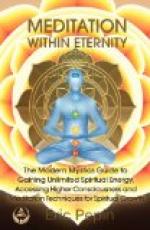These sutras, together with Buddhist mantrams will be considered in a subsequent chapter, devoted to the development of spiritual consciousness as taught by the Oriental sages and philosophers.
One other great teacher of modern times who has left a large following, was Lord Gauranga, who was born in India in the early part of the fifteenth century. Gauranga was worshipped as the Lord God, whether with his consent, or without, it is not exactly clear, even though his biographers are united on the fact of his divine origin.
Those who have espoused the message of Gauranga claim that he brought to the world “a beautiful religion, such as had never before been known.” But, as this claim is made for all teachers and founders of religions and philosophies, we suggest that the reader compare the message of Lord Gauranga with those of other avatars and teachers.
Lord Gauranga’s message is known as Vaishnavitism, and we will here consider only those passages of his doctrine which shed light upon his attainment of cosmic consciousness. Certainly his breadth of mind, and his standards of tolerance, justice and consideration for all other systems of worship, would indicate his claim to cosmic consciousness.
One of the contentions of the Vaishnavas is that they alone of all religious faiths, admit the divine birth and mission of the founders of all religions.
Thus the Christians have declared that Jesus was the only Son of God; the Buddhists have claimed Buddha; the Hebrews have clung tenaciously to their prophets as the only true messengers from heaven, and the Mohammedans have refused, until the present century, to even sit at the table with the “infidels” who would not acknowledge Mohammed as the only true incarnation of Allah.
It is well to remember that these claims have been made by the blind followers of these great teachers, and that it is almost certain that not any one of them made such claim for himself. Certainly he did not, if he had attained to spiritual consciousness.
One passage from the doctrines of Gauranga is almost identical with many others who have sought to express the feeling of security, of deathlessness which comes to the soul which has realized cosmic consciousness. He says:
“My Beloved, whether you clasp me unto your heart, or you crush me by that embrace, it is all the same to me. For you are no other than my own, the sole partner of my soul.”
The gospel of Gauranga and his followers is, indeed, much more a gospel of love, than of methods of worship, or of intellectual research.
The realization of our union with God, in deathless love, is the key-note of the message, and this great joy or bliss comes to the soul as soon as it has attained Illumination through love.
God is alluded to in Vaishnavism most frequently as Anandamaya—meaning all joy. Vaishnavism more nearly resembles the gospel of Jesus, as taught by orthodoxy, than it does the Vedantic systems, since it does, not claim that God is within each human organism, as the seed is within the fruit, but that, by love, we may gain heaven or the state or place where God dwells.




